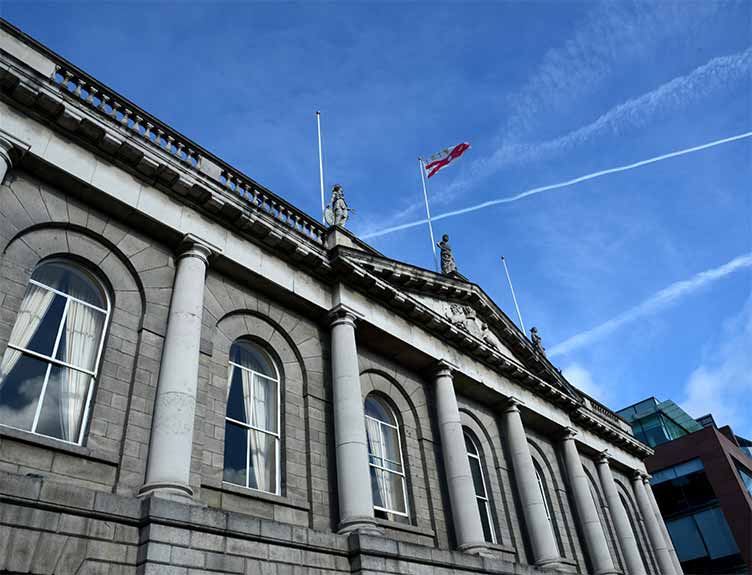RCSI’s historical legacy of innovation showcased in new publication

RCSI’s rich history of innovation in medical and surgical practice is showcased in a new publication Instruments & Innovations available to view on the Library’s Digital Heritage Collections platform.
The publication showcases 10 instruments and innovations, tracing their origins and development and highlighting the great minds who invented them.
Featured instruments and innovations include:
- the first blood transfusion in Ireland which has a unique connection to Bram Stoker’s blood-thirsty Dracula
- the trepan, a tool used to drill a hole in a head
- the stethoscope which took on its modern form thanks to RCSI graduate Arthur Leared
- the butcher’s saw which cut through bone more evenly than any other saw
- the aural snare developed by William Wilde, father of Oscar Wilde.
This project started as part of RCSI’s Research Summer School, an opportunity for Undergraduates to experience diverse research environments, and was developed further by the Heritage Collections team with input from RCSI academic staff who provided clinical insight. The instruments themselves are largely gifts from alumni and their families to the Library’s collections.
Commenting on the publication, Kate Kelly, RCSI Director of Library Services said: “RCSI holds a unique place in the history of surgery and medical education in Ireland. We are delighted to share these highlights from our collections with the public for the first time, sharing unique facts about the history of medicine in Ireland and the legacy of innovation connected to RCSI since its foundation in the late 1700s.”
Instruments & Innovations is available to view on the Library’s new Digital Heritage Collections platform which also hosts other online exhibitions showcasing RCSI’s history and legacy in the world of healthcare.
RCSI Library provides access to the best available biomedical information resources, supported by quality services and spaces and an expert team. The Library is also custodian of RCSI's unique historical materials covering over two centuries of medical and healthcare history in Ireland and across the world. The collections touch on medical, social, historical and personal events that have taken place over the last 250 years and include archives, manuscripts, pamphlets, portraiture, medical instruments and furniture.
The RCSI Research Summer School (RSS) provides Undergraduate students at RCSI the opportunity to become involved in research projects. From a competitive process, students spend approximately eight weeks (June-September) in a laboratory, clinical or research setting, working on projects under the supervision of an RCSI Principal Investigator (PI) or research lead.



